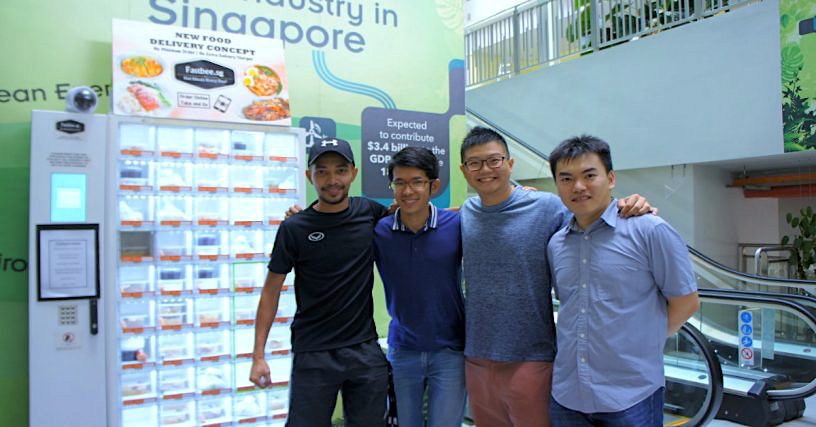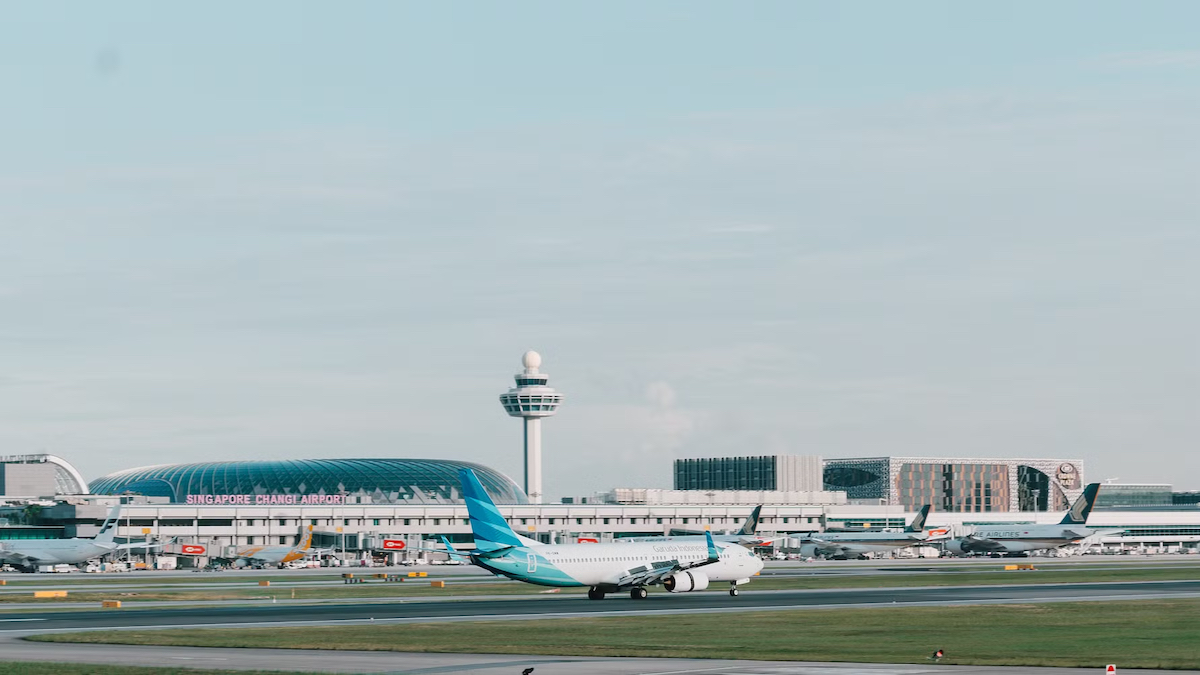There’s been a slew of food delivery startups that have emerged in Singapore beyond just Foodpanda and GrabFood.
And to stand out from the rest, new startups are more niche, serving a particular group of consumers.
For instance, Plum dispatches gourmet food at cheaper prices, Porterfetch satisfies your late-night hunger pangs with after-hours delivery, and Don Don Play delivers Japanese rice bowls to local university students.
There are also startups that deliver hawker food, such as WhyQ and Fastbee.
While WhyQ caters to CBD workers, the latter caters to workers in more ‘ulu’ (remote) areas such as industrial and business parks in the West.
Fastbee in particular, adopts a unique model whereby it allows users to place lunch orders via its mobile app. These meals will then be delivered to designated vending machines for self-collection.
The menu is specially curated, with food blogger-featured dishes such as the Hainanese Scissors Curry Rice and Thaksin Beef Noodles.
But Is It A Successful Business Model?

Fastbee founder Khoo Kar Kiat admitted that while their delivery model is innovative, Singaporeans needed a bit of warming up to get used to the idea of vending machines.
“I still believe in the concept of using a vending machine but it turns out that to convince people to take up a new habit, it’s very tough,” he told Channel NewsAsia.
We’ve had people coming to tell us that they like our concept, but somehow without some incentives like a discount code, people will not download an app or make another purchase.
Kar Kiat also said that his startup did not have a “deep warchest” to roll out promo codes or launch extensive marketing efforts which in hindsight, caused them a great downfall.
Low S$1.50 Delivery Fee Backfires On Them
Amidst such a competitive food delivery landscape, Fastbee has thrown in the towel and announced that it will be ceasing operations today.
Kar Kiat revealed to Channel NewsAsia that the startup has had difficulty raising funding to support business operations.
Earlier this year, it had actively sought venture capital (VC) and has since expanded its search to include traditional investors as well.
But by April, its cashflow was running low as talks with a potential investor dragged on, he said.
They had to resort to reducing the number of vending machine locations from 10 to 6, but it was still tough for them to hold the financial fort without any fresh funding.
[inline_ad id=’643540′ /]
“We were actively reaching out to VCs and angel investors to obtain funding in order to scale up. However, we do not at this point have sufficient resources to achieve the growth rate that such investors are looking at,” he said in an interview with Channel NewsAsia.
“Later on, we tried to explore other types of investors and pivoted our model to be even more economical but we were running out of time.”
Its monetisation strategy also leaves much to be desired as it only relies on a low S$1.50 delivery fee as its main source of income.

Unlike most food delivery companies, it does not take a cut from hawkers or impose a minimum order requirement.
While it relied on aggregating orders and eliminating point-to-point deliveries to stay lean and keep costs down, the start-up required economies of scale to turn profitable, said Kar Kiat.
At its peak, Fastbee had a footprint of 10 vending machines while delivering 10,000 packets per quarter from a team of just seven delivery men.
Featured Image Credit: Fastbee








